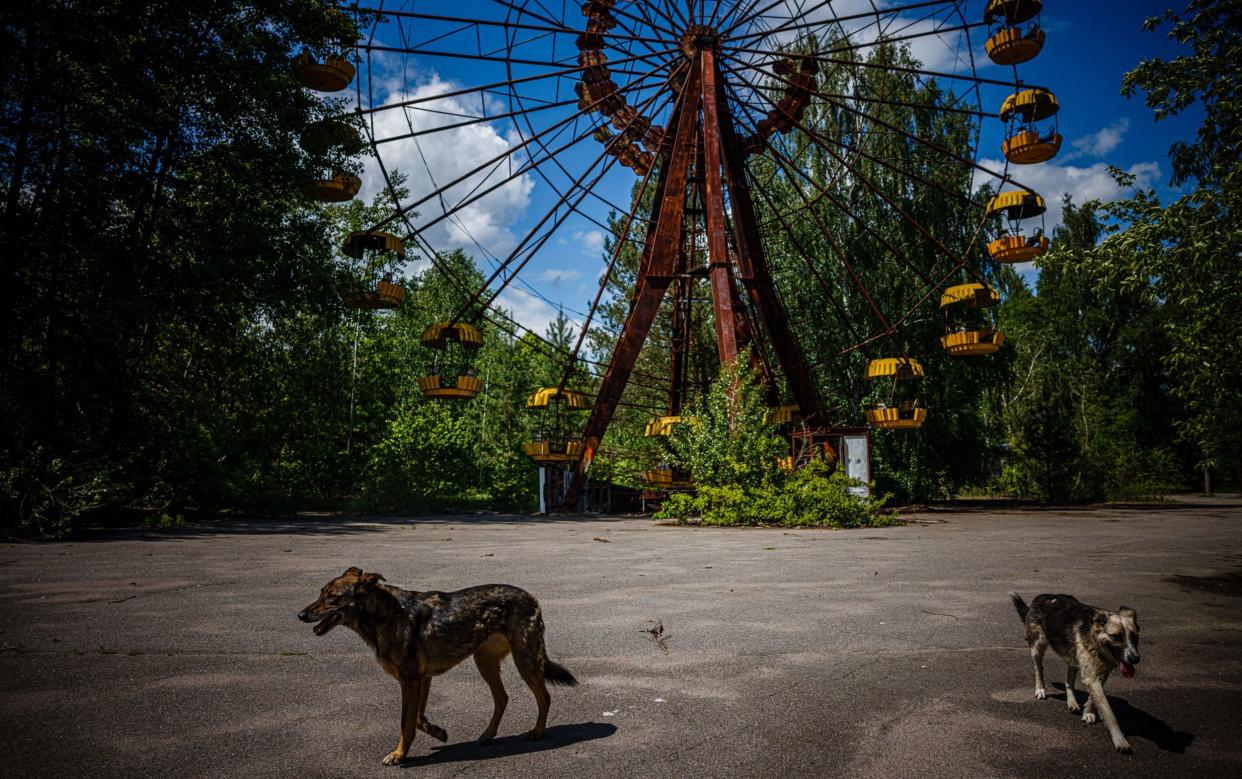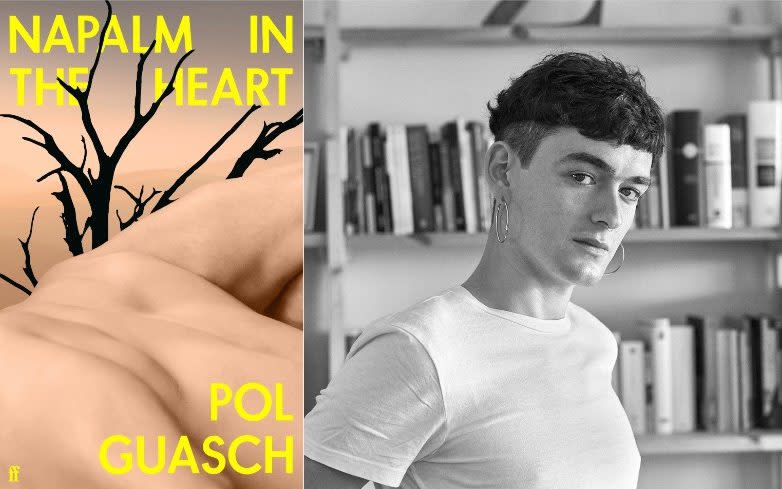Blood, booze and mud spatter this post-apocalyptic story

Pol Guasch’s dystopian debut novel opens in an unnamed city on a tributary of the Catalan river Tet, in the aftermath of a mysterious ecological disaster at the local factory. “There was so much phosphorescent light that morning that we found circles of fish floating in the water and flocks of birds on the ground, gathered one last time to die together.” Access to the area has been restricted and most of the population has been cleared out. The only ones left are the soldiers patrolling the streets, the wild animals “returned from the forest” and a handful of stubborn civilians. Among the latter is the narrator, a young man living with his mother and grandfather on the city’s outskirts.
In brief, fragmentary chapters, we follow this narrator – never named – as he carves out a meagre subsistence, navigates the loneliness of post-apocalyptic life, pines for his lover Boris, and contemplates questions of sexuality, family, language and death. Death, in particular, is everywhere. Napalm in the Heart is punctuated by a series of murders, suicides and botched attempts at animal slaughter, all unflinchingly described. When, early on, the narrator’s grandfather dies, he is tasked with cutting the body into chunks and dispersing it across the garden as fertiliser:
As I run the saw through his frail wrists, images cycle through my mind: when we dug the pond together, I with a little pail and he with the large shovel and wheelbarrow, carrying the dirt into the forest – now his ulna and radius are putting up a fight – when he would tell me about his father, returning from the war with his body full of shrapnel, stubbornly silent until the day he died, not opening his mouth even once – now his neck vertebrae and his spurting aorta…
The author seeks out this tension between violence and tenderness, between the degeneration of a broken world and the traces of humanity that still exist in it. Women gather amid the wreckage of the city to drink moonshine and feast on a pig they’ve slaughtered. Lovers meet clandestinely in an abandoned, rat-filled house, until they are caught by an intruder and forced into brutal self-defence: “I smash the bottle of liquor on his head, so hard you can hear his skull shattering. And I think about a thick branch of a tree splintering.” Guasch is sketching a world in which all social conventions seem to have fallen away, and challenging his characters to construct new ones. It’s hard not to hear the occasional echo of the Covid-19 pandemic in their halting attempts: “those of us who didn’t leave remained inside at home, bored to death”.
Midway through the novel, the story suddenly accelerates, as the narrator and Boris decide to escape the city and embark on a road trip through the world beyond. Things out there aren’t much less bleak. They encounter a farm on which enslaved labourers are forced to bare-handedly harvest prickly fruits; a squadron of ominous-looking border guards in black chainmail and helmets that cover their faces “like ivy”; a shanty colony of migrants who show off the “stumps” and “empty eye sockets” sustained in their attempts to cross the border; and, at an abandoned campground, a group of hold-outs who welcome them “like small animals in a cave”.

Yet throughout this journey, plot is secondary to atmosphere. Guasch has published two collections of poetry, and Napalm in the Heart is, at its heart, a poet’s novel – for better, not for worse. Brimming with energy, what buoys it are clever ideas and some beautiful turns of phrase, deftly translated from the Catalan by Maya Faye Lethem. During his travels with Boris, for instance, the narrator reflects on the fragility of his existence:
Speaking: reviving a dying language. Living: resisting the gusts of wind. And loving, for me: nearing a body equal to mine without knowing if it is poison or syrup. And it is always poison.
This is a moving manifestation of Guasch’s central question: whether individuals can withstand a ruined world, and revive for themselves traces of what has been lost. There is syrup to be found here – for those able to stomach the poisons along the way.
Napalm in the Heart, tr Maya Faye Lethem, is published by Faber at £16.99. To order your copy, call 0808 196 6794 or visit Telegraph Books

 Yahoo News
Yahoo News 
